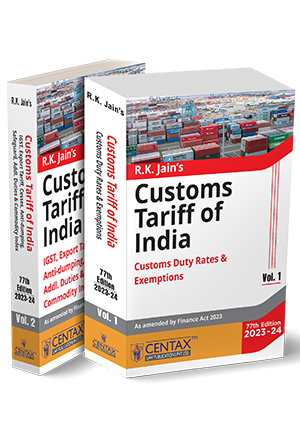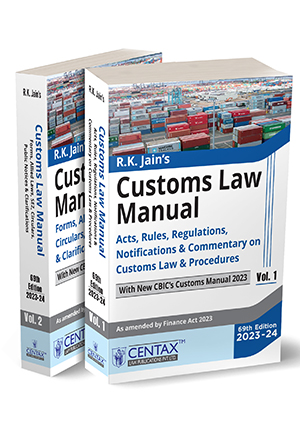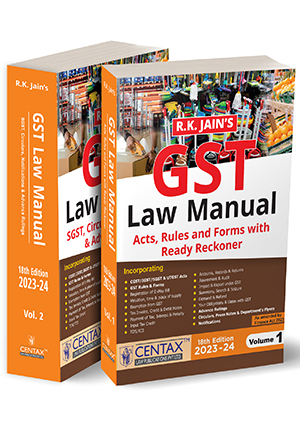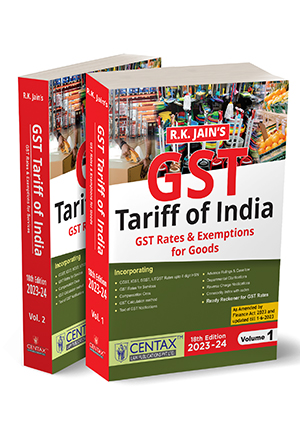[Opinion] GST on Warranties – Must Needed Clarification
- Blog|News|GST & Customs|
- 2 Min Read
- By Taxmann
- |
- Last Updated on 21 August, 2023
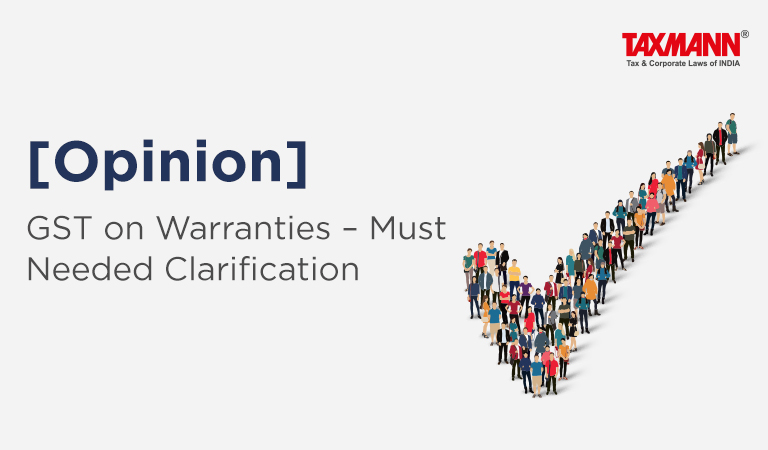
Komal Sampat, Komal Patolia & Chirag Patel – [2023] 153 taxmann.com 438 (Article)
It has been 6 years since the introduction of the Goods and Services Tax (‘GST’) law in India. Given that the GST law is relatively new, there have been continued efforts by the Central Board of Indirect Taxes and Customs (CBIC) to simplify and clarify the taxability on various transactions including, but not limited to, concerns around product/service classifications, eligibility of input tax credit, taxability of transactions, etc. Among the various aspects of GST, tax treatment for free replacements of parts and/or repairs services under the warranty period and eligibility of GST input tax credit on such parts so replaced, has been an area of concern for original equipment manufacturers (“OEM”).
Given the above background, it is first important to understand the term “warranty”. Generally, in commercial parlance, a warranty is a contract between the manufacturer or seller and the buyer, promising protection in the form of without-cost replacement of parts or free repair services against defects and malfunctions for a specified period. Generally, a warranty is of two types, base or standard warranty, and extended warranty. Base warranty is the initial warranty coverage provided by the manufacturer at the time of purchase without any additional consideration charged from the customer, whereas, an extended warranty also referred to as a service contract or extended service plan can be purchased separately by paying additional consideration.
Under GST Act, sectoral FAQs for the IT/ITES industry clarifies that
“As parts are provided to the customer without consideration under warranty, no GST is chargeable on such replacement. The value of the supply made earlier includes the charges to be incurred during the warranty period. Therefore, the supplier who has undertaken the warranty replacement is not required to reverse the input tax credit on the parts/components replaced.”
Similarly in the case of Saraswathi Metal Works Before AAR (Kerala) [Advance Ruling No. KER/25/2018, dated 20-10-2018] and South Indian Federation of Fishermen Societies Before AAR (Kerala) [Advance Ruling No. KER/102/2021, dated 25-5-2021], the Authority of Advance Ruling under GST (‘AAR’) observed that no GST is payable for the supply of parts under warranty without consideration and also that the supplier who undertakes warranty replacement is not required to reverse the GST input tax credit of parts so replaced.
Click Here To Read The Full Article
Disclaimer: The content/information published on the website is only for general information of the user and shall not be construed as legal advice. While the Taxmann has exercised reasonable efforts to ensure the veracity of information/content published, Taxmann shall be under no liability in any manner whatsoever for incorrect information, if any.

Taxmann Publications has a dedicated in-house Research & Editorial Team. This team consists of a team of Chartered Accountants, Company Secretaries, and Lawyers. This team works under the guidance and supervision of editor-in-chief Mr Rakesh Bhargava.
The Research and Editorial Team is responsible for developing reliable and accurate content for the readers. The team follows the six-sigma approach to achieve the benchmark of zero error in its publications and research platforms. The team ensures that the following publication guidelines are thoroughly followed while developing the content:
- The statutory material is obtained only from the authorized and reliable sources
- All the latest developments in the judicial and legislative fields are covered
- Prepare the analytical write-ups on current, controversial, and important issues to help the readers to understand the concept and its implications
- Every content published by Taxmann is complete, accurate and lucid
- All evidence-based statements are supported with proper reference to Section, Circular No., Notification No. or citations
- The golden rules of grammar, style and consistency are thoroughly followed
- Font and size that’s easy to read and remain consistent across all imprint and digital publications are applied

